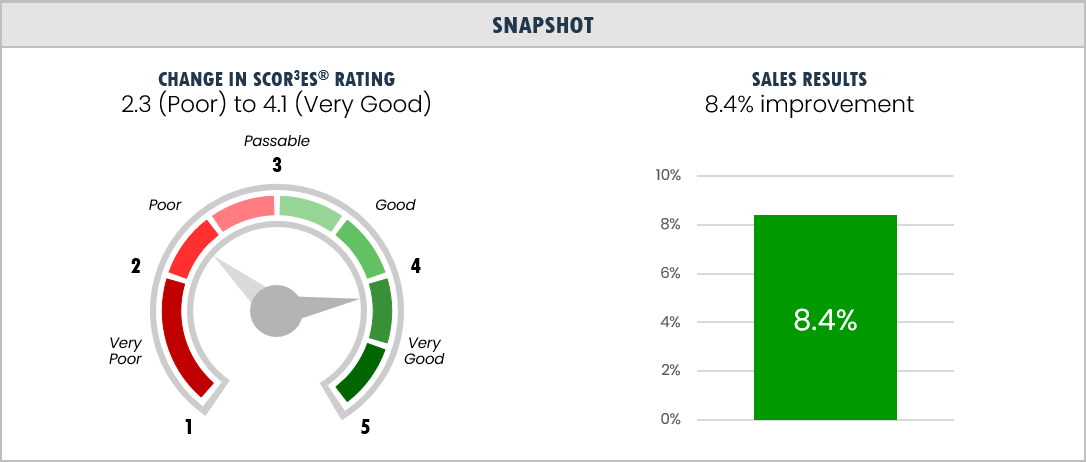Replacing Grid-Based Sales Compensation Plan with Commission-Based Plan
Background
The biopharma company was medium-sized with a sales force carrying one growth product with large differences in volume and market share across territories, and a specialized product with competitive weekly data.
Old Sales Compensation Plan
The old sales compensation plan was a conditional flex grid in which territories were divided into five conditional groups based on past period sales and rewarded based on percent change in TRx, similar to the below sample grid:
There were a number of problems with the grid. Consider Territory A with past period sales of 340. If Territory A grows 20% to 408, the payout is $4,500 (refer to navy circle above). However, Territory B (with past period sales of 400) earns more than Territory A without even growing—$5,000 (refer to blue circle above). Furthermore, Territory A earns far less than Territory C (with past period sales of 350) at 10% growth with $5,250 (refer to red circle above). Other problems also existed. This plan received an overall rating on our SCOR³ES® diagnostic assessment for sales compensation plans of 2.3, or poor.
New Sales Compensation Plan
The new sales compensation plan designed by The Marketing Advantage was a three-tiered commission rate with a territory-level contingency plan. Commission was based on a territory’s market share relative to “achievable market share” (level of competitive sales that could realistically be achieved) and volume. This new plan received an overall rating on our SCOR³ES® diagnostic assessment of 4.1, or very good.
Sales Results
Sales improved 8.4%. The simple relationship between performance and earnings under the new sales compensation plan as well as a weekly report telling the sales force how much they earned each week motivated the sales force to continually beat their personal best, which ultimately drove sales.







